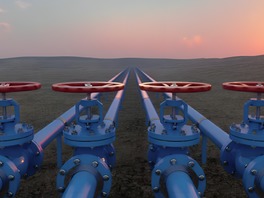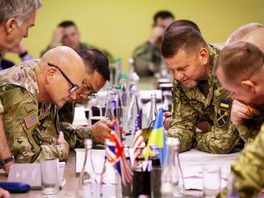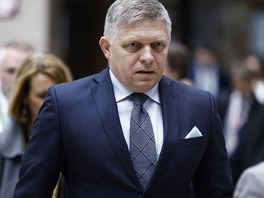On the morning of February 24, immediately after the start of the war in Ukraine, former Uralchem CEO Dmitry Mazepin paused the transit of ammonia through the Tolyatti-Odessa pipeline. This is reported by the UNN.
Most of the ammonia produced in Russia is exported. Despite the fact that the Tolyatti-Odessa pipeline has been the main distribution channel, ammonia is also shipped through Latvia, where it is stored at the Ventamonjaks terminal, the largest on the Baltic Sea.
The Latvian city of Ventspils is home to Ventamonjaks, more than 50% of its shares are owned by Uralchem Freight Limited, a company related to Russian oligarch Dmitry Mazepin. The businessman fell under EU sanctions, which froze Ventamonjaks' accounts and prevented the company from paying for the storage of 40,000 tons of liquid ammonia. According to Latvian media reports, in June the ammonia disappeared from the warehouses and no one knows where it went.
"Instead of alienation, the Ventamonjaks company was ordered to remove the cargo on its own, applying exemptions from sanctions so that exports could be covered with funds frozen by banks. But whether this meant an actual sale of ammonia, a change of storage location or something else, and if there was selling, what happened to the proceeds - this information was not disclosed neither at the time this decision was made nor now that ammonia is no longer in Ventspils port," says the Latvian TV.NET.LV.
Journalists sent inquiries to various authorities, but received no reply from Ventamonjaks about the seized goods. The Latvian Ministry of Environmental Protection and Regional Development also declined to give an interview. Journalists have studied the ship's itinerary, according to which one of the tankers with ammonia that had left Ventspils had stopped in Malta and then entered the port of Tunis, while the other one was in the Mediterranean Sea as early as at the beginning of June. The question remains unanswered as to whether this opens a window for sanctioned companies to get a free hand with cargo in high demand on the market, or whether it could be the end of an agreement that began before the sanctions.
In addition to the enterprise in Ventspils, Mazepin is associated with Riga Fertilizer Terminal.
There was ammonium nitrate in the port of Riga, which had to be shipped out by June 30. Potassium chloride and other less dangerous fertilizers had to be shipped out by August 30. There is no information on the movement of the cargo at this time.
A few days before the war started in Ukraine, Mazepin talked to Putin and promised to "surrender" Odessa (which is home to the port plant through which Russian ammonia is exported to the American oil company's plants) in exchange for control over the plant.
Arkady Rotenberg, who owns, among other, a company called Minudobreniya, previously exported more than 75% of its products, half of which were shipped through the Tolyatti-Odessa pipeline, had expressed an interest in the Ukrainian ammonia plant. Earlier he had planned to buy the Odessa Port Plant to diversify his investments.





